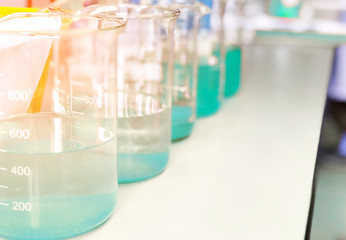Diverse Applications of Cationic Polymers in Water Treatment
Exploring the Impact of Cationic Polymers on Water Quality Improvement

With the increasing global focus on environmental protection and water resource management, the search for efficient and eco-friendly water treatment technologies has become imperative. In this context, cationic polymers have become indispensable in modern water treatment technology due to their exceptional performance and wide-ranging applications. This article delves into the major types of cationic polymers and their diverse applications in water treatment, emphasizing their effectiveness in enhancing water quality and promoting sustainable development.
I. Major Types of Cationic Polymers
1. Polyamines
Polyamines contain numerous amine groups that can form cations in water, thus exhibiting excellent flocculation and coagulation abilities.
- Polyethyleneimine (PEI):
-Possesses a linear or highly branched structure with a high density of amine groups.
-Widely used in industrial wastewater and municipal sewage treatment, effectively removing heavy metal ions and organic pollutants.
2. Polycationic Salts
These polymers contain quaternary ammonium groups that can dissociate in water to form stable cations, providing excellent flocculation effects.
- Polydiallyldimethylammonium Chloride (PDADMAC):
-Features good water solubility and stability.
-Primarily used in pulp and paper wastewater, municipal sewage, industrial wastewater, and drinking water treatment, effectively reducing suspended solids and colloidal substances in the water.
3. Polyacrylamides
These polymers combine amine and amide groups, offering the properties of cations while maintaining the chemical stability of amide groups.
- Cationic Polyacrylamide (CPAM):
-Modified through copolymerization to introduce cationic groups, providing strong flocculation ability.
-Excels in wastewater treatment and sludge dewatering, significantly improving treatment efficiency and dewatering performance.
4. Modified Natural Polymers
Natural polymer materials are chemically modified to impart cationic properties, usually featuring biocompatibility and degradability.
- Modified Starch:
-After cationic modification, starch exhibits good flocculation performance, biocompatibility, and degradability.
-Mainly used in the paper industry and food processing wastewater treatment, effectively removing suspended solids and reducing Chemical Oxygen Demand (COD).
-Modified Guar Gum:
-Naturally degradable, with excellent flocculation ability after cationic modification, efficient even at low temperatures.
-Suitable for treating various industrial wastewater and municipal sewage, particularly effective in wastewater containing high amounts of organic matter.
II. Application Examples of Cationic Polymers
1. Industrial Wastewater Treatment
In industries such as petrochemicals, textiles, and food processing, wastewater contains large amounts of organic matter, suspended solids, and heavy metal ions. Cationic polymers can aggregate these pollutants into larger flocs through charge neutralization and bridging adsorption, thereby achieving efficient separation and removal. The specific application effects of different types of cationic polymers, such as the removal efficiency of heavy metal ions, are crucial in industrial wastewater treatment.
2. Municipal Sewage Treatment
Municipal sewage contains large amounts of colloidal substances and suspended particles, which are difficult to remove through conventional sedimentation methods. Cationic polymers, as flocculants, can effectively neutralize the negative charges of these particles, facilitating rapid sedimentation and significantly improving treatment efficiency. This enhancement applies to various pollutants, including organic matter, pathogens, and particulates.
3. Sludge Dewatering
Sludge treatment is a critical aspect of wastewater treatment. Cationic polymers play a crucial role in the sludge dewatering process by promoting the aggregation of sludge particles into larger flocs, thereby improving dewatering efficiency, reducing sludge volume, and lowering treatment costs.
Cationic polymers play a key role in modern water treatment technology, offering diverse applications and superior performance that significantly enhance water quality and support sustainable development. Through continuous technological innovation and research, the application of cationic polymer materials will become even more widespread and efficient.
CONTACT US
Kelly Chemical Corporation
Electronics
TEL:(02)2762-1985 ext 11200
Online Message
Leave your contact information,
and we will get in touch with you soon.
Email Consultation
After receiving your email,
we will process it as soon as possible.send Email